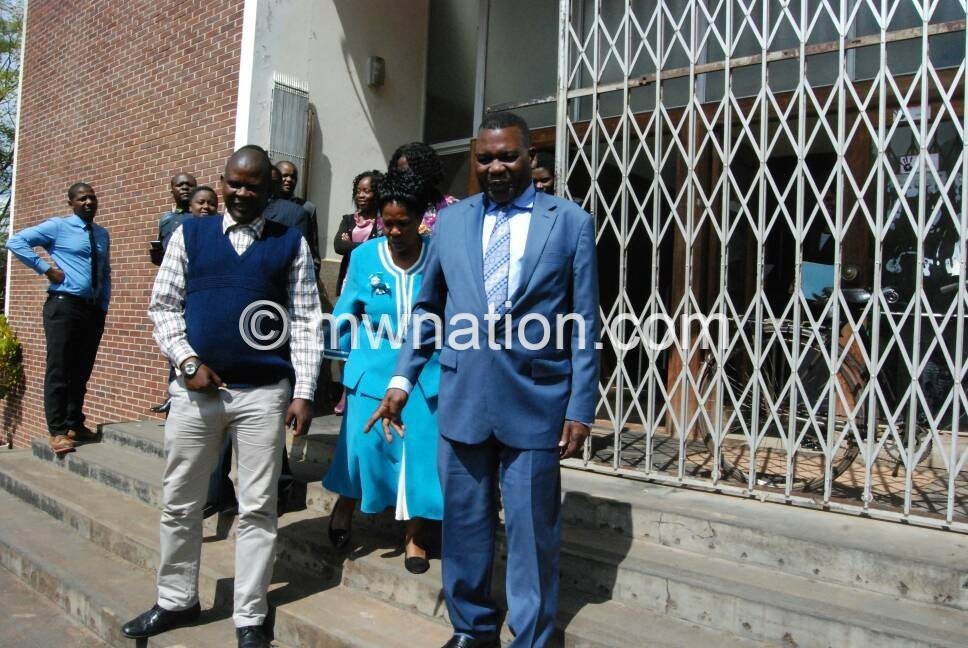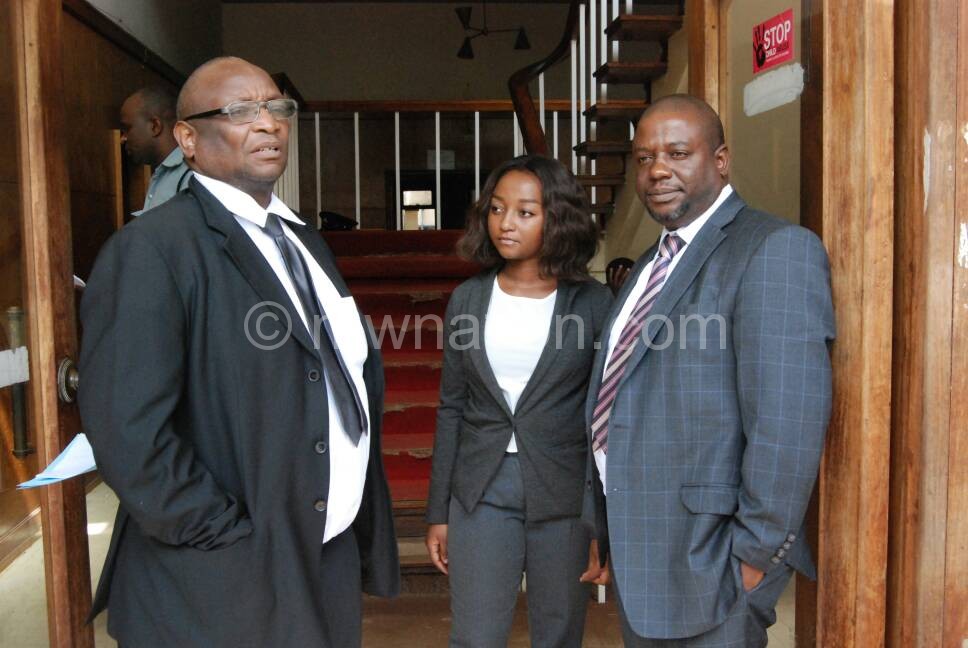Malawi’s former farm minister Chaponda set free
Malawi’s Former Minister of Agriculture, Irrigation and Water Development George Chaponda on Friday walked to freedom after the Zomba Magistrate Court found he had no case to answer in corruption-related charges regarding the 2017 maize procurement deal from Zambia.
Chief resident magistrate (CRM) Paul Chiotcha also acquitted Rashid Tayub, one of the directors of Transglobe Produce Export Limited, after trashing the State’s evidence in its totality.

Chaponda was answering three charges which included giving false information to Anti Corruption Bureau (ACB), influencing a public officer to misuse his position and possession of foreign currency, while Tayub was answering to the charge of persuading a public officer to misuse his position. They both denied the charges.
As the magistrate read his ruling, Chaponda, who is also Democratic Progressive Party (DPP) vice president for the South, remained composed with his eyes fixed on the magistrate while Tayub could be seen wrestling an upsurge of emotions.
The magistrate virtually quashed all the evidence presented by the State in support of four counts arguing they lacked element of corruption.

For instance, the magistrate said the court could not help the State to dispute Chaponda’s license to possess foreign currency after their own witness Minister of Finance and Development Planning Goodall Gondwe testified that he issued the permit to Chaponda both as an individual as well as a minister.
“We cannot accept his evidence only where they agree with him and not where they disagree with him. If they wanted to disagree with their own witness they should have turned him into a hostile witness. All in all, if the evidence of the State is anything to go by and the cross examination am satisfied the first accused person was justified to posses the said currency,” said Chiotcha in his ruling.
Reacting to the ruling, lead State counsel Macmillan Chakhala said they accepted the court’s determination and will make known the way forward once the bureau analyses the ruling.
“We respect what the court has said but we cannot say we are satisfied. As for our options we will sit down with the director general, investigators and prosecutors… As regards to appealing the matter that will be up to the director general because we prosecute on his behalf,” said Chakhala.
On their part, lawyers Tamando Chokhotho and Jai Banda representing Chaponda and Tayub, respectively, hailed the court, saying they expected the outcome.
“We are delighted with the determination. The position the court has given after analysing the evidence shows the independence of the judiciary that it does not depend on what goes around the social media by the evidence in the court,” said Chokhotho.
Banda said from first day of trial they had been pushing for speedy judgment because they believed in the innocence of the accused.
He also said it would be a waste of time and resources for the State to appeal the case because “we don’t see even the superior courts holding any contrary decision” from what has been decided by the magistrate court.
But in an interview Chaponda said he had always maintained that everything was done in the best interest of Malawians in view of the dire food situation the country faced when he was minister.
“Unfortunately, this matter was greatly politicized and the facts were twisted as part of a systematic and vicious smear campaign against me. Notwithstanding the attempts to tarnish my name, I am grateful that the truth has come out. The court has shown without a shadow of doubt that there was no legitimate case against me,” wrote Chaponda in a WhatsApp response.
Chaponda was arrested on July 19 last year alongside Tayub, and Grace Mijiga Mhango, a businesswoman and also chairperson of the Grain Traders and Processors Association of Malawi (GTPA).
Malawi President Peter Mutharika in January ordered an investigation into a $34.5 million government maize order, after a Zambian opposition leader said he had seen documents showing Malawi had been charged $345 per ton for 100 000 tonnes of Zambian white maize worth $215 a ton.





